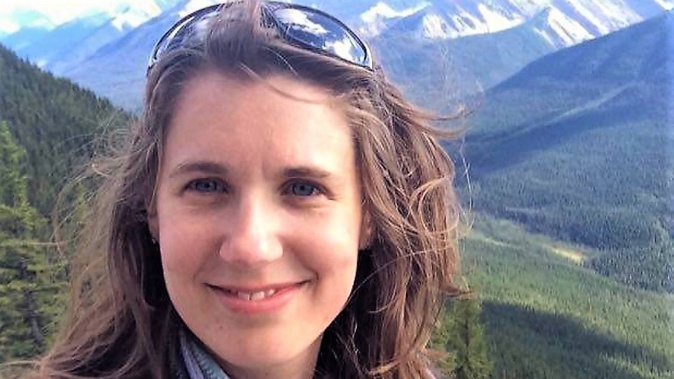
A lack of warm emergency gear and the decision to traverse an icy slope not suitable for novice climbers may have contributed to the death of British woman Emma Langley in Mt Ruapehu, a coroner has found.
Langley, 37, died in 2020 when she slid nearly 500 metres down the mountain while on a trip with the NZ Alpine Club.
Bad weather prevented a helicopter from reaching her at 2200m, so rescue teams had to climb up to her in separate teams.
Ultimately it took about eight hours to get her into a mountain lodge, by which time she had succumbed to hypothermia.
Coroner Matthew Bates did not assign blame to anyone for Langley’s death, saying the trip leaders had enough experience and were qualified to lead the hike.
But he said the group’s decision to change its plans to take a steep slope at Cathedral Rocks above Whangaehu Glacier at 12.30pm greatly increased the risks.
“At no time was there any place for novice members of this group to be traversing steep sloping,” Bates said.
Another contributing factor was Langley’s decision to descend the slope without using a belay rope.
Bates said one of the trip leaders had been in the act of setting up the rope to help the group go down safely, but Langley and another member descended before it was ready.
Bates said it was unlikely that Langley, a novice mountaineer who had undertaken a two-day Level 1 Basic Snowcraft Course, would have descended if she had heard the instruction to wait.
“Therefore, the issue appears to have been clear communication,” he said, noting that high winds could have made it hard to hear.
More could have been done to protect Langley after the fall, Bates and a report prepared by the NZ Mountain Safety Council noted.
That was partly due to the trip leaders’ “well-intentioned” haste to reach her.
Bates said that, after Langley slid down the mountain, the leaders decided one of them would hurry to help, while the other would lead the rest of the group down safely.
But the NZMSC report noted the trip leaders did not first stop to assess and divide their emergency equipment.
That meant that, when the first trip leader reached Langley, he did not have all the gear, such as a sleeping bag, needed to prevent hypothermia and shock.
He then had to wait some time before the rest of the group made it to the location.
“It took approximately four hours for Emma to be placed in a sleeping bag and to have basic shelter from above provided,” Bates said.
“She was not completely insulated in the sleeping bag, nor was she suitably insulated from the freezing ground beneath her, and it took nearly nine hours before she was adequately insulated from the freezing environment (wrapped and insulated from the ground inside a shelter).”
Bates consequently made a series of recommendations to try to prevent similar deaths.
They included ensuring instructors, leaders and mentors on high mountain trips should have a minimum of two days’ outdoor first aid training.
This training should emphasise the management and treatment of hypothermia and emergency response procedures, he said.
Langley’s family shared a message with the coroner, remembering their daughter and sister as an “adventurous, bright and articulate” woman “with a wicked wit and a wonderful sense of humour”.
Take your Radio, Podcasts and Music with you









